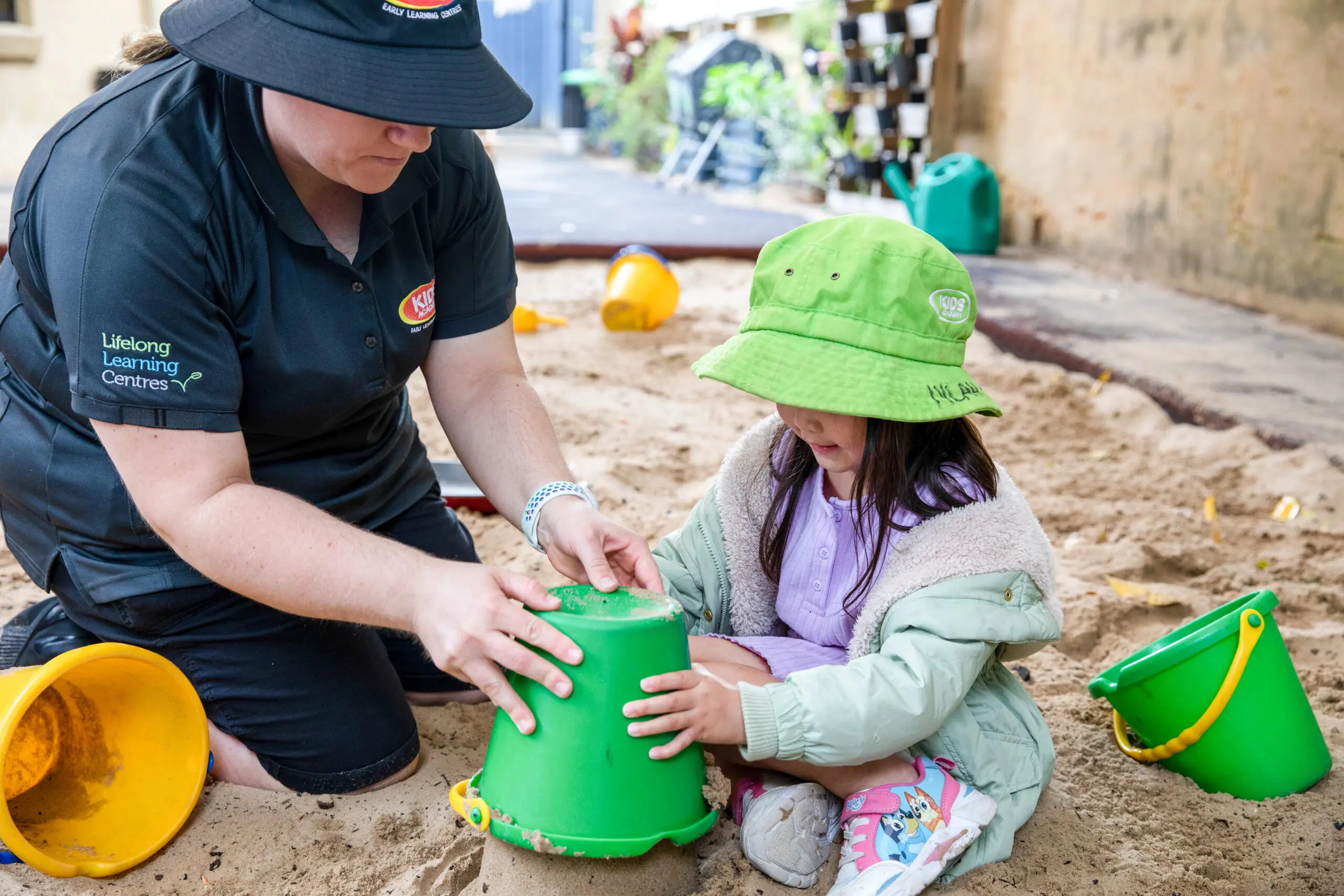
Becoming a parent for the first time means making a lot of first time parenting decisions. One of the biggest choices parents can make is whether or not to send their child to child care and when is the right time to do it.
There are many reasons that families choose to send their child to child care – there isn’t a perfect answer to when you should send your child to child care, but there are many factors to take into consideration to assist you with making the best possible decision for your child and your family.
The good news is, there is no minimum age on when you can enrol your child in care, with long day care being available from 0-6 years of age. Children are required by law to be up to date with their vaccinations unless a medical exemption applies.
Some families require child care due to work commitments, whilst others may be interested in its role in supporting the development of the child.
Here are some of the main benefits of enrolling your child in child care.
Socialisation opportunities
Socialisation is an important part of your child’s development, as well as their long term wellbeing. Socialising with other children and with their educators encourages your child to learn to communicate with others, to share, to play and to care for others.
Children and babies are egocentric in nature, but attending child care is the first major step towards learning how to be empathetic towards others, and to foster a sense of belonging within a community of peers.
Children who are enrolled in care will benefit from having their very own social network beginning to grow. In the early days of child care, children may learn from playing with others and learning to talk to others in social situations. As they progress through the years at care, they will thrive with offers of play dates, birthday parties and even sporting activities suitable for tots – right through to graduating from child care and going to school together with their peers.
Cognitive and language development
Research has shown that nearly 90 per cent of a child’s brain development happens in the first five years of their life. Language develops from birth when children begin by listening to the language being spoken around them. Enrolling your child in child care ensures they are in an environment that supports their language development and early literacy skills. Talking, playing, singing and reading are all regular activities that are offered in a day care environment, and your childcare provider should be able to identify opportunities for early intervention should your child require further assessment and support.
Attending care regularly is beneficial for a child’s cognitive development. Brain development is extended through your child’s ability to recall information, use their imagination, problem solving and relationship building. In a childcare environment, your child will be supported by curriculum based activities and structure that is provided by early childhood educators.
Milestones such as predicting the ending of a story, developing a sense of humour, learning to play games and take turns are all signs that your child’s cognitive and language development are flourishing.
Establishing routines
Children thrive with the security that a predictable routine offers. Attending child care means establishing a routine from the beginning of the child’s day to the end. Having a regular routine from waking up to getting ready to leave the house for child care helps your child to know what is coming next in their day. Predictability helps to reduce anxiety in children and helps to encourage positive behaviour.
Developing a routine around children’s basic needs such as sleeping, eating, playing and quiet time, allows the child to learn what to do when particular activities are happening. In a day care centre your child may be told it’s time to eat lunch, which will signal to them that it’s time to pack away the current activity they are doing, wash their hands and sit at the table ready for meal time. These routines are not only important for their day to day activities, but they will develop skills that they will take with them throughout their lifetime by having early routines established.
Transition to primary school
The final years or the pre-school years are important to your child to assist them with a smooth transition from long day care into primary school. Transition programs might include getting your child to bring their lunch box to child care, where they will receive a typical school-based menu and they will learn to find their lunchbox, unpack their food and pack up their lunch mess when they are finished. Fine motor activities such as scissor cutting and letter tracing might be integrated into your child’s transition plan as well as introducing early literacy activities such as beginner reader programs, letter and phonics recognition and counting.
Having a solid transition program from child care into school helps your child settle into the school environment and to have a sound understanding of what is required of them once they reach school.
Learn more about the Lifelong Learning Curriculum that is offered exclusively at Affinity Education run early education and child care centres, including Kids Academy, across the country.